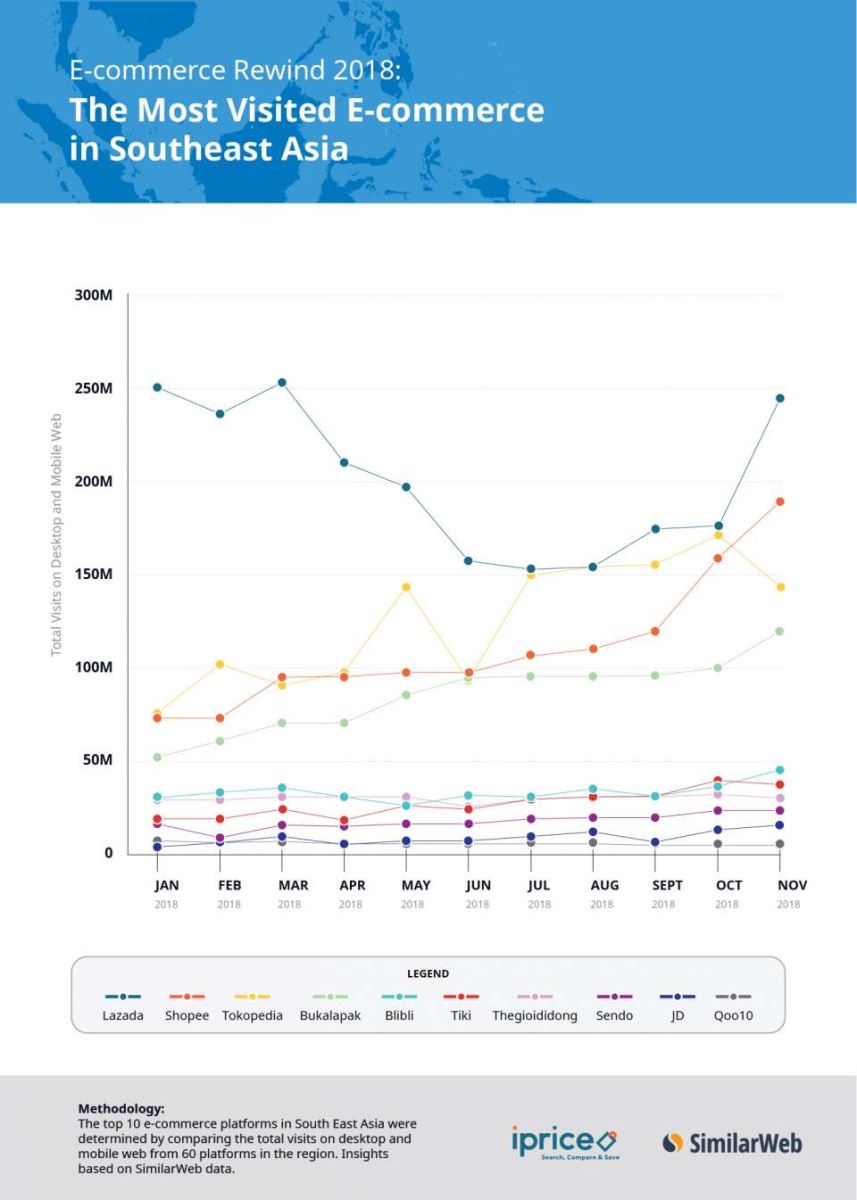New legal framework required for Vietnam’s fast-growing e-commerce
The Hanoitimes – The fast-changing nature of Vietnam’s e-commerce environment requires timely modification of related regulations.
Vietnam’s fast-growing ecommerce has exposed shortcomings in the current legislation, posing challenges for both government agencies and users, Cong Thuong newspaper, run by the Ministry of Industry and Trade, reported.
Huge potential for growth
Total revenue of Vietnam’s e-commerce in 2018 reached US$2.26 billion, up 29.4% year-on-year.
Additionally, the number of consumers shopping online stood at 49.8 million, up 2.6%, making the country the world’s sixth-largest e-commerce market, according to Germany-based online statistics portal Statista.
In the fourth quarter of 2018, Singapore’s online shopping platform Shopee claimed the top spot among e-commerce sites operating in Vietnam in terms of traffic with 123.2 million visits, followed by local Tiki with 107.9 million visits, Lazada 97.6 million, The Gioi Di Dong (Mobile World) 88.3 million and Sendo 76.2 million.
Notably, all the four sites have been named among the list of Southeast Asia’s top 10 highest traffic e-commerce sites in 2018, revealed Iprice Insights and Similar Web.
Statistics from the Vietnam E-commerce and Digital Economy Agency (iDEA) under the Ministry of Industry and Trade (MoIT) showed the rate of online shopping via Facebook in 2018 in Vietnam reached 70%, slightly increased against 2017.
Nguyen Tran Thi, CEO of e-commerce express delivery company, said Vietnam’s e-commerce market grows by nearly 100% annually, thanks to the growing trend of shopping online and the majority of young customers having access to the internet.
However, the fast-growing e-commerce has posed numerous challenges regarding the quality control process. As a result, many e-commerce firms have exploited the advantages of an e-commerce platform to sell low quality or even counterfeit goods, leading to a more cautious approach of customers towards online shopping and its subsequent negative impacts on credible e-commerce firms.
Dang Hoang Hai, head of iDEA said the explanation and full disclosure of policy and regulation on e-commerce trading floors are essential to ensure rights and obligations of both sellers and buyers.
Nevertheless, there has been a lack of awareness from e-commerce service providers to prevent violations from happening.
Challenges remain
Currently, the development, application and management of e-commerce activities have been regulated by Decree 52. However, the fast-changing nature of Vietnam’s e-commerce environment requires timely modification of related regulations, Hai added.
More importantly, e-commerce activities have now included cross-border transactions with the involvement of multiple parties, causing difficulties for government agencies to supervise, Hai continued.
Nguyen Thanh Hung, chairman of the Vietnam E-commerce Association (VECOM), said tax collection is one of major problems that Vietnam’s e-commerce is facing, as 91.8% of transactions are involved with paper invoices.
Vice Minister of Industry and Trade Cao Quoc Hung added the sustainable development of Vietnam’s e-commerce would require favorable legal framework and improvements of infrastructure in the context of digital economy.
Source: http://www.hanoitimes.vn/economy/2019/02/81E0D350/new-legal-framework-required-for-vietnam-s-fast-growing-e-commerce/


 English
English




